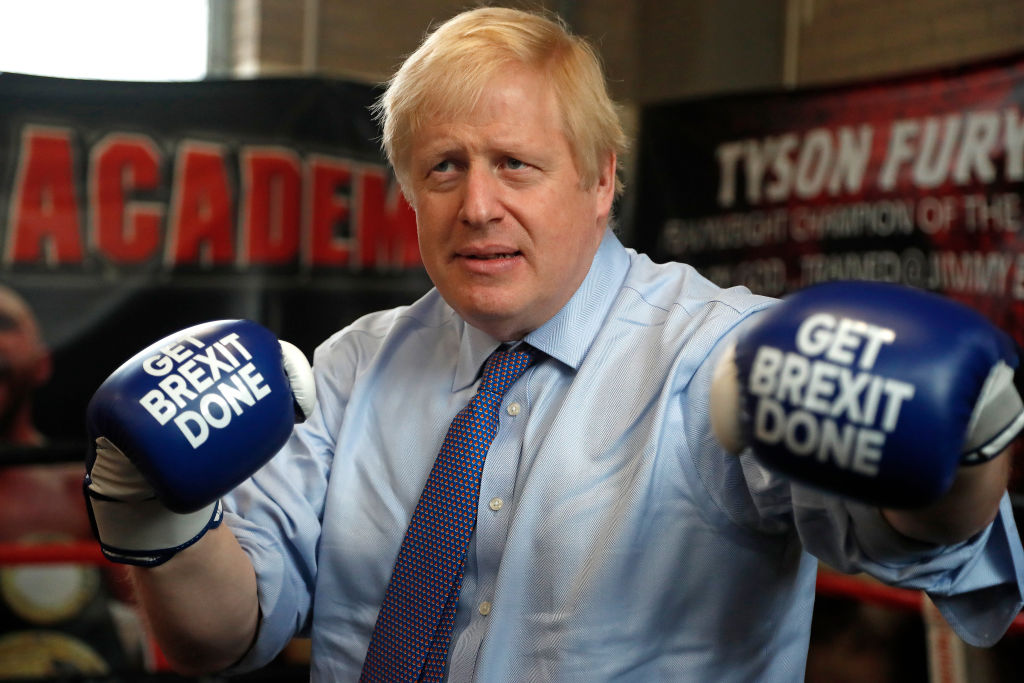Now that the Tories have replaced Labour as the party of the workers, are we heading towards a one-nation economy? And if so, are the days of ‘rolling back the frontiers of the state’ completely over?
It’s not yet clear that the Conservatives have fully come to terms with the enormity of the transformation in thinking that is implied by their pledge to ensure that prosperity spreads to every corner of the land.
There are still many Conservatives who want to see some more rolling back of the state, but a one-nation economy implies rolling the boundaries forward and not only by fully funding public services. That’s the easy bit. A policy on behalf of the individuals and localities ‘left behind’ will mean active government.
What should this more nuanced economic strategy look like?
First, it involves questioning some of the most rooted assumptions of recent times. Whenever we discuss government economic action we find ourselves slipping into the use of terms such as government intervention or state interference, which imply that a market economy is a natural state of affairs that exists spontaneously in the absence of the state. According to orthodox theory, markets work best without the state, whose intervention is nothing more than an unmerited disruption.
In truth, however, a market economy – like a free society more generally – is not the result of vigorously doing nothing but the outcome of laws and institutions carefully crafted over many years to create a protected realm of free initiative. A free society is the political achievement of law reformers not the result of absent government.
The free-market ideas that took root in the era of Thatcher and Blair in the UK and Reagan and Clinton in the US, were necessary in their day but have now become doctrinal orthodoxies that block the path to a one-nation economy.
There are two causes of their continued support: one may be called economic pseudo-science and the other economic utopianism.
Economists have engineered a dominant role for themselves by portraying a market economy as a natural system that functions according to scientific laws that they understand. They think they deserve special respect for their insight but as perhaps the greatest economist of the twentieth century said when receiving the Nobel prize for economics, economics is a pseudo-science.
In Hayek’s own language it is ‘scientistic’, an attitude which he defined as: ‘decidedly unscientific in the true sense of the word, since it involves a mechanical and uncritical application of habits of thought to fields different from those in which they have been formed’.
For him, a market is not a system that follows scientific laws but the name for a ‘discovery procedure’ through which we cope with uncertainty and risk by entrenching self-criticism, public appraisal, and mutual learning from successes and failures.
Economists have portrayed themselves as the possessors of scientific knowledge but they are more like members of medieval crafts that kept their power by keeping their knowledge a mystery. When we speak of economists we should think more of alchemists and apothecaries than practitioners of physics or chemistry.
The second source of support for market fundamentalism is the kind of utopianism effectively ridiculed by Voltaire in Candide.
Economists of today are like Voltaire’s Dr Pangloss, who thought that ‘all is for the best’ in the ‘best of all possible worlds’. According to economists, allowing our manufacturing to disappear or decline will be best for everyone in the ‘long run’. Workers who are displaced in the ‘short run’ will go up the value chain as capital finds its way to its most efficient uses.
In reality, workers have remained on lower wages or out of work for many years. Parts of America were being called the rust belt in the 1980s and they are still waiting for the long run – a brighter future that is conveniently remote.
If a market economy is a discovery process rather than a natural condition, and if a one-nation economy is a political achievement, then the government should ask how it can create institutions that provide opportunities for people to take personal responsibility for improving economic life. Taking back control should mean local empowerment rather than Whitehall largesse for the provinces. One simple bit of institution building could be transformative, namely the creation of a legal framework for local banks.
At present, anyone saving their money in the North East will usually find that the best rate of interest is from an international bank that will suck money out of the region into the global market.
A local bank of the kind created by law in countries such as Germany and Switzerland can only hold the savings of people in a given geographical area and can only invest in domestic mortgages or businesses in that same area. This puts the power of invention and investment into the hands of people committed to the wellbeing of their neighbours.
The government can and should put money into the regions to improve public services and infrastructure. But, if Hayek was right to see an economy as a system for discovery, the top priority should be to electrify the inventive pioneers everywhere so that they can create their own better future in new ways as yet unforeseen and beyond the anticipation of any government.
David Green is Director of Civitas






Comments